360 tour: Edinburgh's Real Mary King's Close
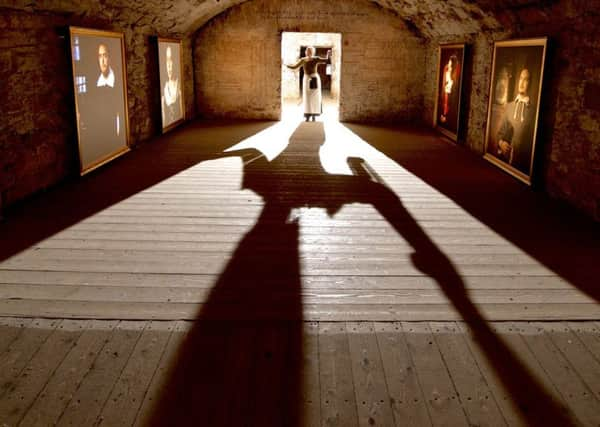

Their product is a good one: an abandoned 17th century close (it’s actually three closes) concealed by the Royal Exchange building - now the City Chambers - in 1753 and partially forgotten about for a couple of centuries.
Rather than simply creeping patrons out, the organisers behind the attraction have been busy scouring the city archives in an effort to reveal the names and stories of the real people who resided here.
Advertisement
Hide AdAdvertisement
Hide AdHundreds of men, women, children and animals all lived on the close once upon a time, and you do genuinely gain a sense of the hardships they faced by wandering through its dank, dark and, at times, cramped and uninviting passages.
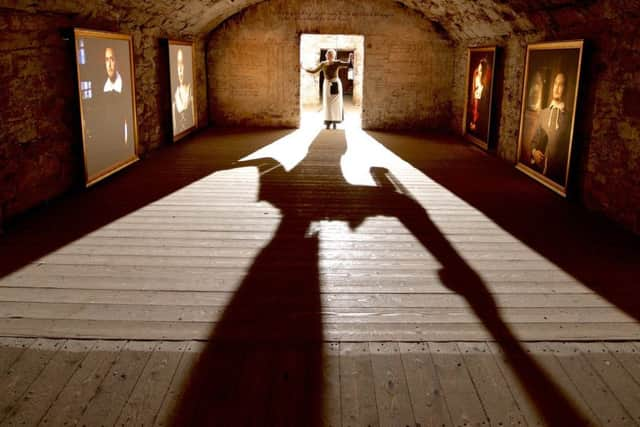

The visitor is led through a series of dimly-lit rooms and corridors by one of six knowledge guides, each of whom is dressed as a different contemporary character.
Full of humour and histories, our tour guide, the poet Robert Fergusson - played to perfection by a local lad named Ryan - was on hand to regale us with fascinating tales of the folk who once inhabited the space. Impressive visuals, in the form of large paintings that ‘magically’ spring to life, add further value to the visitor experience without being tacky.
It’s at this point I feel it’s important to dispel some common myths about the tour, a couple of which I’m ashamed to admit I’ve pedalled myself at one time or another.
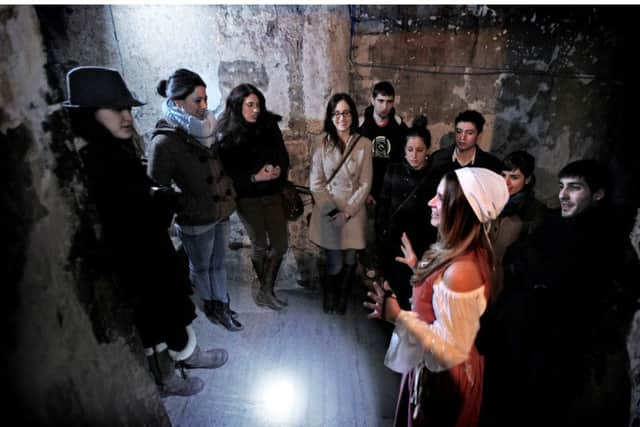

First off, nobody lived underground. Fail to listen to your tour guide properly and you might come away thinking that the poor folk in 16th century Edinburgh were forced to live as troglodytes. Not the case. Prior to the construction of the City Chambers in the 18th century, the close as we see it today was a well-trodden artery that was open to the skies and reportedly the second widest street in Edinburgh.
Secondly, plague victims were not imprisoned in their own homes. I don’t know where this sensationalist bunkum originated, but it’s most definitely not true that pestilence sufferers were boarded up or bricked in at Mary King’s Close and left to perish. Unprompted, our tour guide laid this rubbish to rest, opting instead to tell us about physicians such as George Rae, a real-life plague doctor who seriously risked his wellbeing treating the close’s plague victims.
Lastly, this is not a ghost tour, nor do the guides treat it as such.
Advertisement
Hide AdAdvertisement
Hide AdTaken with a heavy dose of salt, then, is the story of Annie, the wee girl who was first ‘encountered’ in 1992 by Japanese spiritualist, Aiko Gibo.
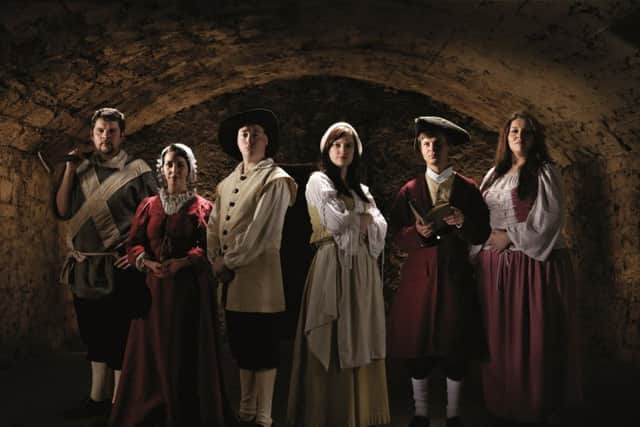

She explained that little Annie, a plague victim, had been abandoned by her parents and was wandering the close, distraught at losing her favourite doll. Aiko dashed to the nearest toy shop and brought Annie back a Barbie.
This act soon became a tradition and today ‘Annie’s Room’ is filled to the brim with all manner of gifts.
Never mind wee Annie, though, I was more freaked out about the presence of the One Direction album among all the cuddly toys. So much for placating a demented spirit...
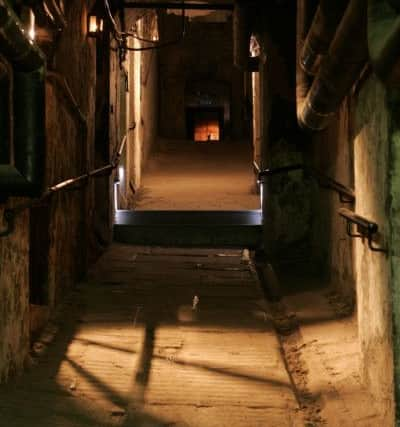

I’ve been on other underground tours where they’ve told you certain parts are out of bounds for fear that the Black Death still lingers and other nonsensical guff of that ilk.
Here at Mary King’s Close they also have a room that’s out of bounds: the Chesney family’s home, which was still occupied until at least 1897 when the council offered Mr Chesney £400 to move out so that the City Chambers could be enlarged. The reason we’re not allowed to enter this house, though, is a logical one - the walls are coated with arsenic.
Arsenic was a common ingredient in 19th century wallpapers and poses a very real and lingering threat to visitors’ health if you get too close.
Advertisement
Hide AdAdvertisement
Hide AdThis was my first visit on the Real Mary King’s Close tour since 2010 and it’s improved immeasurably in that time.
The quality of the guides and their material sets it apart from other tours of a similar nature and I genuinely came out of it wide-eyed and feeling I had learned something about my city.
Yes, at £14.95 a ticket, it’s fairly demanding on the old wallet, but so is Edinburgh Castle and the Camera Obscura, or just about any fee-paying attraction these days!
If you’ve never visited, or haven’t been in a number of years, then get booking; you’ll be pleasantly surprised.
